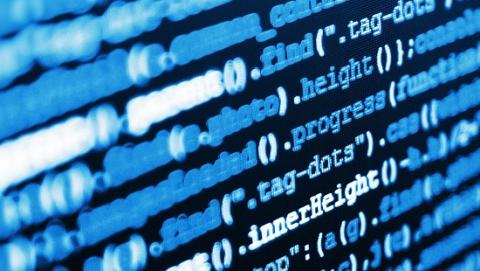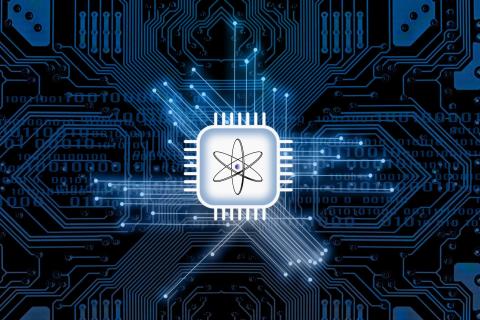
Training in scientific mediation
QICS training – Training in scientific mediation for the dissemination of knowledge in the field of quantum information
Registration open until October 15
What is quantum information? What does the concept of quantum information cover? Which fields does it cover? Which topics are of interest in quantum information? Why do we oppose classical information to quantum information? Why, today, does this discipline seem to be emerging while it has always been part of the research projects of a number of laboratories? Who is interested in quantum information? For what kind of applications and future developments?
So many questions that specialists, apprentices, public, institutions, industries are asking.
Description of the training
The objective of this short course is to give PhD students working in one of the themes of quantum information, the keys to answer these questions to the largest audience. To do this, it will be a question of making them collaborate together so that through this transdisciplinarity, they can, at the same time, complete their knowledge, transmit it also and make new joint projects emerge.
Through new information and communication technologies, thanks to a collaborative work and an accompaniment throughout the project by professionals of the scientific mediation and scientific experts, the participants will acquire new knowledge and competences in the field of the transmission of knowledge in general, and its specificities, within the framework of the quantum information.
In addition to these theoretical skills, the participants will contribute to the creation and realization of educational and scientific popularization materials. At the end of this training, the doctoral students will present two deliverables which you will find the description below.
This training is intended for PhD students working in a field related to quantum information, regardless of the discipline. For more information, click here
The originality of this training is based on the co-construction of the content between QICS and the participants. Depending on the projects selected, QICS modulates the program to provide the support and means adapted to the realization of these projects.
These projects can take different forms, digital or physical, such as a video, a documentary, a game, a book, an object, a magazine, an artistic or graphic work, an article, a report, etc. Through this format, the target audience must be able to understand and integrate the subject in a simple and accessible way for a non-expert.
As an example, in 2020/2021, two projects were built in parallel, around digital technology and in two different formats:
- The serious game High-QICS was developed around two important themes; education through video games and quantum physics. This project, led by four doctoral students, was presented during the Festives, an event organized by Sorbonne University, from November 25 to 27, 2021.
- A second team, between 6 and 10 people, has chosen to produce video animations of 5 to 7 minutes maximum on quantum information; through the creation of the scenario, production (shooting of sequences, staging) and post-production (dressing, editing, animation, etc.). A YouTube channel allows the diffusion of these materials to a dedicated audience.
The students have been brought to use different digital tools of audiovisual and graphic creation (Manim', Adobe Creative Cloud suite, Speed Drawing, and Unity)
This training includes approximately 25 hours of coaching with the speakers, complemented by personal work in small groups. It will take place over 8 months, that is, on average, one session per month, between November and June of each year. A schedule will also be established jointly by QICS and the selected participants. Depending on the needs, it may evolve to add or delete sessions.
Program :
- session n°1 (2h): description of the course and definition and choice of projects to be delivered, assessment of audiences for content creation, identification of actors and network ;
- session n°2 (2h) : introduction to project management tools, content development, description, and distribution of tasks and team building;
- session 3 (2h): evaluation of needs/tools and development of contents;
- session 4 (7h) : training in creation tools, practical application, exploration of possibilities for scripting and design, production of a test version;
- session 5 (2h): choice of the global mechanics of the “object” and construction phase, re-evaluation of pedagogical objectives, methodology for writing video scripts and programming the first recordings if necessary;
- session n°6 (2h): demonstration of the first version and viewing of the first version of the editing of the “object”, feedback from the professionals and proposals for improvement;
- session n°7 (1h) : practical work around the writing of a video scenario;
- session 8 (2h): video scripting and best practices in post-production (editing, dressing, sound, color grading, etc.); designing an “object” to improve its ergonomics;
- session 9 (2h) : How to disseminate and communicate around a scientific project;
- session n°10 (1h) : how to present your project in public;
- session n°11 (2h): assessment of the training and how to make these two projects live and last.
The course is designed for a minimum of 4 students and a maximum of 16.
Frédéric Grosshans: Research associate in the QI team of LIP6 and co-director of the Quantum Information Center Sorbonne
Nicolas Treps: Professor – member of the Institut Universitaire de France and of the Kastler Brossel Laboratory - Sorbonne Université
Khamsa Habouchi: General Secretary of the Quantum Information Center Sorbonne, coordinator of the production of 16 MOOCs and as many other digital formats in public health (documentaries, teasers, short animated films)
Hélène Dupont: Doctor in scientific ecology and videographer, specialist in educational formats (MOOC, MOOD, teasers, documentary films)
And a scientific coordinator from the QICS community depending on the project
To apply to this program, please send your application between September 1 and October 15 to qics@sorbonne-universite.fr. In your application, please specify the following elements:
- 2/3 lines presenting your motivations for this training;
- your doctoral school of affiliation;
- your research topic ;
- and your laboratory of affiliation.
You will receive an answer between October 15 and 31 after all applications have been evaluated by QICS.





